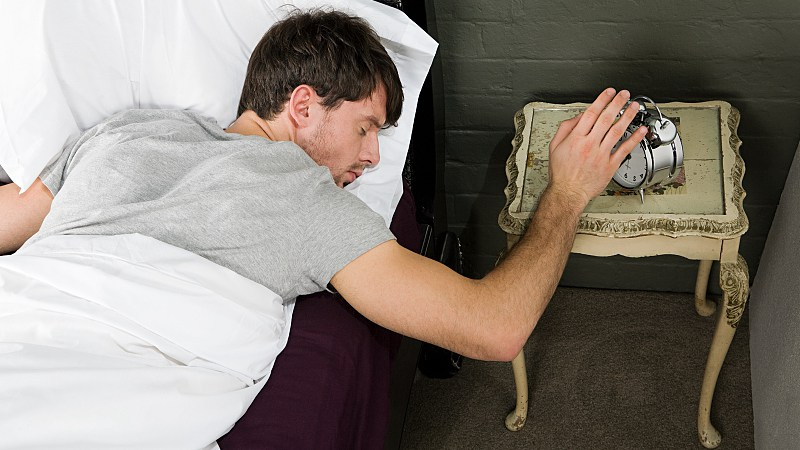
(Photo: CGTN)
WASHINGTON, Feb. 28 (Xinhua) -- American scientists found that catch-up sleep on the weekend couldn't repay the weekday sleep debt and such an inconsistent schedule might make things worse.
The study, published on Thursday in the journal Current Biology, has shown that sleeping in on the weekend can only help the body recover mildly but its effects do not last and even showed worse outcomes on some measures.
"Our findings suggest that the common behavior of burning the candle during the week and trying to make up for it on the weekend is not an effective health strategy," said the paper's senior author Kenneth Wright, director of the Sleep and Chronobiology Lab at University of Colorado Boulder.
The researchers enlisted 36 healthy adults aged 18 to 39 to stay for two weeks in a lab. They were divided into three groups: those with plenty of time to sleep, those with only five hours per night and those with no more than five hours nightly for five days followed by a weekend when they could sleep as much as they liked.
Both sleep-deprived groups ate more at night so they gained weight and saw declines in insulin sensitivity. The weekend recovery group had mild improvements during the weekend, but those benefits went away when their weekday schedule resumed, according to the study.
When the weekend recovery group went back to insufficient sleep, their circadian body clock was timed later and they also ate more after dinner.
Also, in the group which had their sleep restricted the whole time, whole body insulin sensitivity declined by 13 percent, while in the weekend recovery group it worsened by nine to 27 percent, with sensitivity in the muscles and liver scoring worse than the other groups, according to the study.
"It could be that the yo-yoing back and forth -- changing the time we eat, changing our circadian clock and then going back to insufficient sleep is uniquely disruptive," said Wright.
"This study demonstrates the importance of getting sufficient sleep on a regular schedule," said Michael Twery, director of the National Center on Sleep Disorders Research.
American Academy of Sleep Medicine recommended seven or more hours of sleep per night for adults.


